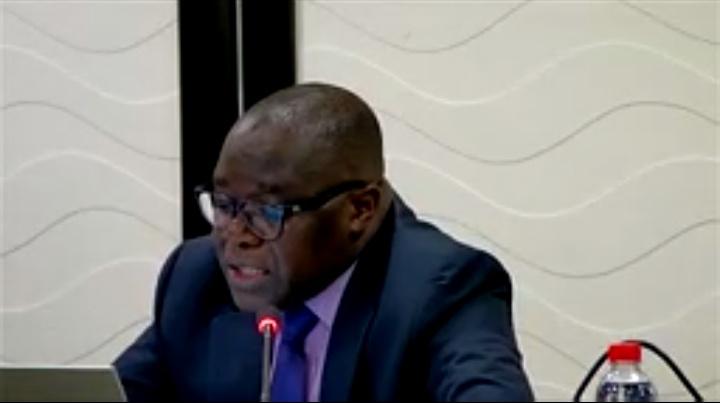|
Getting your Trinity Audio player ready…
|
The establishment of a regional parliament for southern Africa will ensure broader participation of citizens in the regional integration agenda. A senior official at the SADC Parliamentary Forum (SADC PF), Joseph Manzi, said this at the 3rd Regional Dialogue for Non-State Actors on the Regional Indicative Strategic Development Plan (RISDP) 2020-2030, currently underway in a hybrid format across six countries namely Malawi, Mozambique, Tanzania, Zambia, Zimbabwe, and South Africa.
Manzi said only eight countries out of the 16 had so far signed the agreement to transform the SADC PF into a fully pledged SADC Parliament. “We are still short of the two-thirds threshold to transform the SADC PF into a regional parliament,” Manzi said. The eight countries that have signed are Angola, Eswatini, Lesotho, Malawi, Seychelles, Tanzania, South Africa and Zimbabwe. Those that are yet to sign are Botswana, Comoros, the Democratic Republic of Congo (DRC), Madagascar, Mauritius, Mozambique, Namibia and Zambia.
The 41st SADC Summit of Heads of State and Government held in August 2021 in Lilongwe, Malawi approved the transformation of the SADC PF into a SADC Parliament and directed member states to amend Article (9) (1) of the SADC Treaty to pave the way for the changes. However, only eight have done so. According to the SADC legal statute, at 10 least of the 16 member states should sign and ratify any agreement before it enters into force.
The process of signature and ratification differs from country to country and may take several years in one country as compared to another. In this regard, the 3rd Regional Dialogue for Non-State Actors on the RISDP 2020-2030 urged member states to prioritize the transformation of the SADC PF into a fully-fledged regional Parliament. “The SADC Parliament will ensure that citizens can take part in the integration agenda of southern Africa,” said Bismark Mutizwa from the Zimbabwe Coalition on Debt and Development (ZIMCODD).
Bringing on board the SADC Parliament into the regional integration agenda of southern Africa will bridge the gap between citizens and policymakers, thus facilitating inclusivity in policymaking. According to the 41st SADC Summit communique, the SADC Parliament will be a “consultative and deliberative body” meaning it will not have law-making or other binding authority.
The regional parliament is expected to observe and respect the sovereignty of member states while in operational terms it would consult and liaise with other SADC institutions and structures such as the Council of Ministers through which its recommendations would be channelled for consideration by the Summit.
Regarding the relationship with national parliaments, the new regional parliament is expected to facilitate the drafting of model laws while the former will continue their legislative role in domesticating regional laws as well as oversight role on the effective implementation of executive programmes and projects at the national level.
The SADC PF was established in 1997 as an autonomous institution of SADC to bring together national parliaments to dialogue on issues of regional interest and concern. It has however not been functioning as a parliamentary institution but rather as an association of parliaments. It had until this decision struggled to have its mandate transformed into a regional parliament.
The 3rd Regional RISDP NSA Dialogue which opened 13 September 2023 and ends on 14 September, aims to assess progress made by SADC in implementing the 10-year regional strategic plan. The SADC RISDP 2020-2030 is a regional roadmap that prioritizes the integration issues of infrastructure development, industrial development and market integration, social and human capital development and other crosscutting issues, including environment, climate change, disaster risk management, gender and youth empowerment.
The dialogue is co-convened by 14 regional organizations, led by the Partnership for Social Accountability (PSA) Alliance (a consortium of ActionAid International (AAI), Public Service Accountability Monitor (PSAM) of Rhodes University, Eastern and the Southern Africa Small Scale Farmers’ Forum (ESAFF) as well as SAfAIDS.
Other co-conveners are the Southern Africa Trust, Economic Justice Network (EJN) of the Fellowship of Christian Councils in Southern Africa (FOCCISA), Southern African People’s Solidarity Network (SAPSN), and the Southern Africa Coordination Council (SATUCC), SADC Council of NGOs, Care International, Global Campaign for Education, Trust Africa, SADC Youth Forum (SAYoF), and Agenda 2063 Media Network.
